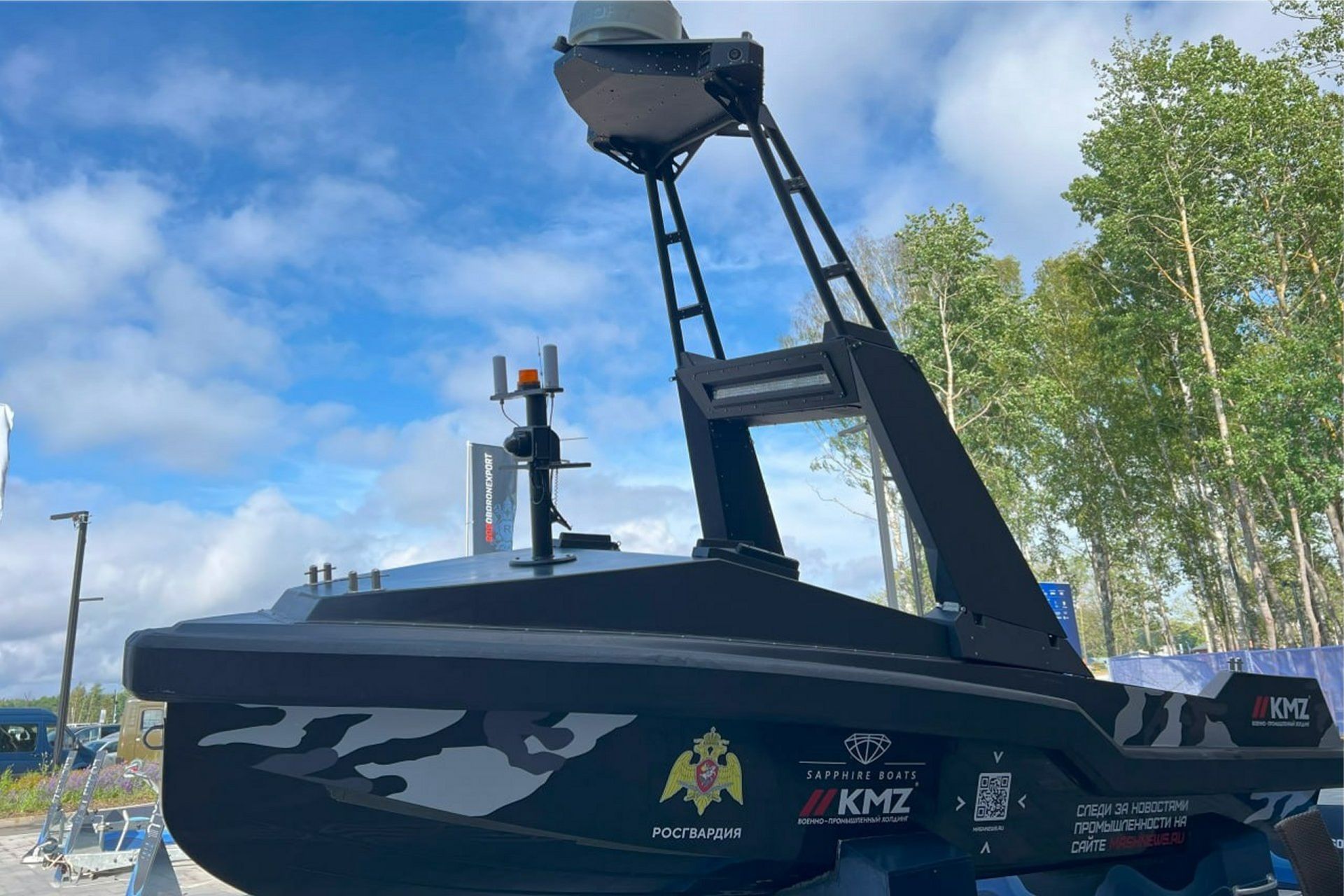Breaking News
Russia launches first unmanned military vessel for autonomous operations.
According to information published by Сделано у нас on September 23, 2024, the Russian machine-building plant in Kingisepp, Leningrad Oblast, has begun serial production of the country's first unmanned military vessel. This heavy, multifunctional hydrographic drone boat is designed for autonomous operations, relying on artificial intelligence and pre-programmed instructions rather than human operators.
Follow Army Recognition on Google News at this link

Russian unmanned surface vessel. (Picture source: Сделано у нас)
The KMZ (Kingisepp Machine-Building Plant) unmanned surface vehicle (USV) is a versatile naval drone, capable of fulfilling multiple roles such as reconnaissance, cargo transport, or armed strike missions. The boat features a hybrid engine that enables energy-efficient movement at low speeds and can accelerate up to 80 km/h. Its range reaches up to 600 km when operating slowly, though it decreases at higher speeds.
In an armed configuration, the KMZ USV can be equipped with heavy machine guns, light missiles, and even payloads of up to 600 kg of explosives, making it a potential kamikaze-style drone. The vessel's adaptability allows it to be reconfigured for tasks like surveying coastal zones or seabeds, transporting sonar equipment, or even being used as an electronic warfare platform.
Russian strategy
Russia has increasingly recognized the strategic importance of unmanned surface vessels (USVs) for naval operations, especially in light of recent setbacks in the Black Sea. The success of Ukrainian USV attacks on Russian naval vessels, including the Black Sea Fleet, has spurred Russia's focus on developing and procuring such systems.
USVs offer advantages such as low-cost production, autonomy, and the ability to be used in "wolf pack" formations, making them a suitable tool for Russia's evolving naval strategy. Despite significant losses to its surface fleet, Russia continues to prioritize a global naval presence, and integrating USVs is seen as a step toward maintaining a modern, resilient force.
Given the current trends, USVs will likely play a growing role in Russia's maritime operations, not only for direct combat but also for surveillance and protection of strategic assets. This marks a shift in naval warfare, where unmanned systems are becoming central to both offensive and defensive strategies.
























